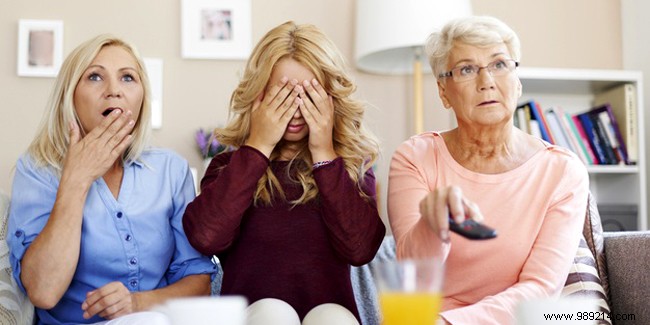
Even if the programs broadcast on television must comply with precise rules in terms of violent and shocking content, it is not uncommon for certain images to offend the sensibilities of viewers. This situation is even more common on the Internet where the number of information and broadcasts of all kinds is exploding. In order to remedy this type of problem, the public authorities provide users with services that allow them to report content they consider offensive.
The Internet is a space where everyone has the right and freedom to express themselves. This freedom of expression and exchange must not, however, go against everyone's rights and respect individuals regardless of their age, origin or opinions.
However, the use of the Internet through its many sites, blogs, forums, discussion platforms, etc., unfortunately shows that it is not uncommon to come across content that is violent, shocking, even prohibited by morality or the law.
Most social networks in particular now have devices that allow everyone to report content that may offend certain sensibilities and to request the removal of information, images, video, remarks, etc., against the law.
These contents, of French or foreign origin, can be of different kinds such as for example linked to paedophilia, to incitement to racial hatred, to homophobia, to the apology of crimes against humanity, to violence against people or animals, or even in favor of terrorism. So much content punishable by French law.
This is why the public authorities provide Internet users with a system intended to report such violent or shocking content. This is the Platform for the harmonization, analysis, cross-checking and orientation of reports, better known as "Pharos", available online at this address:www.internet-signalement.gouv.fr . Anyone can have access to it to denounce, anonymously or not, illegal behavior or content from the moment this information is public on the Internet. Only the IP address (i.e. the identification address of your computer equipment connected to the Internet) is collected by this reporting platform.
Pharos is part of the Central Office for the Fight against Crime Related to Information and Communication Technologies, which depends on the Central Directorate of the Judicial Police, a component of the National Police.
Reports of shocking, violent or illegal content collected in this way are in fact handled directly by gendarmes or specialized police officers. If found to be breaking the law, the reports are forwarded to investigation services. In the case of content broadcast from abroad, reports are sent to the International Criminal Police Organization (Interpol), which directs them to the judicial authorities of the country concerned.
Note also the existence of a professional system that brings together public and private partners, on a European scale, and whose mission is also to facilitate the reporting of illegal content by Internet users via an online form, a mobile application or a module to download and install directly on your Internet browser.
Although the programs broadcast on television may also contain content that may shock some viewers, television channels are subject to different regulations compared to the Internet.
Indeed, all television programs that are not recommended or prohibited below a certain age must be indicated by a specific logo located at the bottom right of the image, or be broadcast during well-defined time slots.
Thus the logos "- 10" and "- 12" indicate a program where violence and shocking images are recurrent, or, if it is a film, that it was prohibited for children under 10 or 12 years old when it hit theaters. "- 16" means a program of an erotic nature or of great violence, a film prohibited for children under 16 when it is released, and "- 18 years" a program of a pornographic nature or of very great violence, or a film prohibited for those under 18 when it was released.
Each viewer is thus warned of the violent or shocking content to which he may be exposed. However, if you feel that a television program is too violent or that the logo affixed is not suitable, you have the possibility of reporting it to the Superior Council of Audiovisual (CSA) on its website. This service also concerns content heard on the radio or viewed during an audio or video on-demand (replay) service.